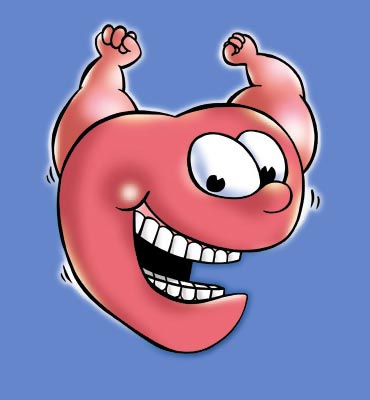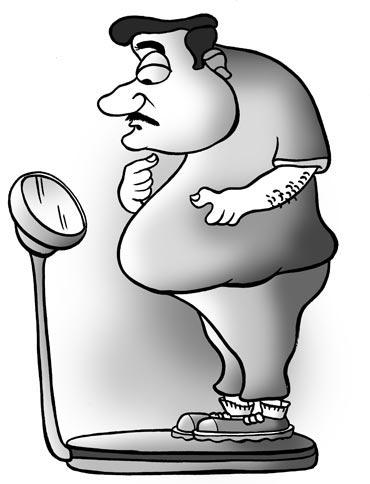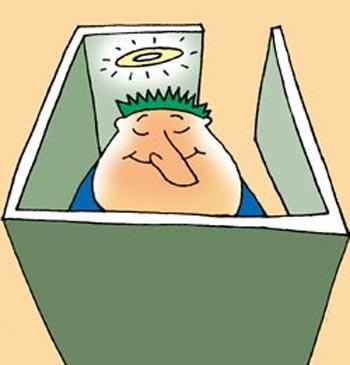 | « Back to article | Print this article |
Why mornings are deadliest for heart attack deaths
Here's a round-up of the latest findings across an array of pressing health issues.
An Indian scientist has claimed that evidence from people suffering from heart disease supports the existence of the molecular link first discovered in laboratory mice between the body’s natural circadian rhythms and cardiac arrest or sudden cardiac death.
Mukesh Jain, M.D., said that it pinpoints a previously unrecognized factor in the electrical storm that makes the heart’s main pumping chambers suddenly begin to beat erratically in a way that stops the flow of blood to the brain and body.
Termed ventricular fibrillation, the condition causes sudden cardiac death (SCD), in which the victim instantly becomes unconscious and dies unless CPR or a defibrillator is available to shock the heart back into its steady beat.
The peak risk hours when SCD strikes range from 6 a.m. to 10 a.m., with a smaller peak in the late afternoon. Scientists long suspected a link between SCD and the 24-hour body clock, located in the brain.
It governs 24-hour cycles of sleep and wakefulness called circadian rhythms that coordinate a range of body functions with the outside environment.
Jain’s group discovered a protein called KLF15 that helps regulate the heart’s electrical activity, and occurs in the body in levels that change like clockwork throughout the day. KLF15 helps form channels that allow substances to enter and exit heart cells in ways critical to maintaining a normal, steady heartbeat.
They first discovered that patients with heart failure have lower levels of KLF15. Then, they established in laboratory mice that KLF15 is the molecular link between SCD and the circadian rhythm. And mice with low levels of the protein have the same heart problems as people with SCD.
Quitting every 28 days adds 1 week to a smoker's life
Former smokers can gain an extra seven days of life for every 28 days they refrain from tobacco, a new study has suggested.
People wanting to quit smoking are being urged to join the ‘Stoptober challenge,’ which starts on October 1, the Independent reported.
According to a government campaign from Public Health England, someone who quits for a month and does not start again could gain an extra seven days of life every 28 days for the rest of their life.
Men more prone to fall ill than women
A new study has revealed that men are more likely to develop physical illness than women.
The research conducted by St. Michael’s Hospital over a period of 10-years found that having a mental illness increases the risk of developing a physical illness by 10 times in both men and women.
However, women with mental illness tend to develop a physical illness a year earlier than men, according to the study by Dr. Flora Matheson, a scientist in hospital’s Centre for Research on Inner City Health.
Women were at a 14 percent reduced risk, compared to men, of developing physical illness; meaning that men are disadvantaged from a health perspective.
The study, which used data from the Institute for Clinical Evaluative Sciences, was conducted to see whether gender also had an impact on the relationship between mental illness and onset of physical illnesses.
There is growing interest in studying the link between physical and mental illness as new studies indicate people with serious mental illness have higher rates of physical ailments such as metabolic syndrome, hypertension and cardiovascular, viral and respiratory diseases.
The study is published online in the Journal of Epidemiology and Community Health.
Women advised to have babies before turning 35
Experts have suggested that women should aim to have children before turning 35.
During British Science Festival in Newcastle, a panel of doctors said that a woman should aim to start her family before the age of 35, as fertility declines sharply after this point, the Scotsman reported.
Experts warned that many women wrongly believe that procedures such as IVF could prolong fertility, saying that there was no way of reversing declining fertility.
Mary Herbert, professor in reproductive biology at the University of Newcastle, advised all women to think about family planning in the context of not just preventing pregnancy but also in the context of having their babies at a time when they still have their reproductive fitness.
The experts said that women are born with a pool of one to two million eggs that shrinks until, at the menopause, the eggs effectively run out.
However, it was also noted that is not only the number but the quality of eggs that is reduced by the passing years.
Steroid jabs ups risk of HIV infection
Nearly 10 percent men injecting themselves with anabolic steroids or tanning drugs could have been exposed to HIV, hepatitis B or hepatitis C, a new poll has shown.
According to the Public Health England (PHE), the number of people using image and performance-enhancing drugs has risen over the past 20 years.
Co-author Jim McVeigh, from the Centre for Public Health at LiverpoolJohnMooresUniversity, said that people injecting themselves with anabolic steroids and associated drugs are the biggest client group at many needle and syringe programs in the UK.
PHE and LiverpoolJohnMooresUniversity researchers questioned 395 men who used such type of drugs and found that one in 18 people had been exposed to hepatitis C, one in 11 had been exposed to hepatitis B and one in 65 had HIV, News.com.au reported.
Overall, 10 percent men were exposed to one or more of the blood-borne viruses.
The study has been published in BMJ Open.
Hangovers reduce with age!
The severity of a hangover depends on age, a new research has revealed.
Corresponding author Janne S. Tolstrup, a research program director at the University of Southern Denmark, said that while it is true that a hangover is mostly referred to in a humorous way, it can also be said that they are the most frequent alcohol-related morbidity.
Tolstrup and her colleagues used 2007 and 2008 information gathered by the Danish Health Examination Survey (DANHES), an Internet-based health survey that asked participants about their diet, smoking, alcohol and physical activity.
Analysis was performed on data provided by 51,645 individuals (24,118 males, 27,527 women) 18 to 94 years of age living in 13 municipalities in Denmark.
Tolstrup said that they found that the tendency to have hangovers decreased by increasing age and that the first explanation that pops up is that this finding would be due to differences in drinking pattern in different age groups.
The results are going to be published in the February 2014 issue of Alcoholism: Clinical and Experimental Research.
Men better at losing weight than women
A new study has revealed that men are better than woman when it comes to dieting and shedding off the kilos.
According to the study, which was conducted by Slimming World on 1.2 million dieters, males have less emotional issues around eating than females, the Daily Express reported.
The research discovered that unlike women, men are much less likely to deter from their goal by events at home or work and they do not use food as a reward or comfort.
Over a 12-week period, men lost an average of 1st 2lbs compared to women, who lost 11lbs.
Additionally, men also attended more weight-loss sessions.
15pc of common strokes occur in adolescents and young adults
A team of researcher including an Indian origin has suggested that 15 percent of the most common type of strokes occur in adolescents and young adults, and more young people are showing risk factors for such strokes.
Co-author neurologist Jose Biller of LoyolaUniversityMedicalCenter said that the impact of strokes in this age group is devastating to the adolescent or young adult, their families and society.
About 85 percent of all strokes are ischemic, meaning they are caused by blockages that block blood flow to the brain. And more young people have risk factors for ischemic strokes.
Those risks include high blood pressure, diabetes, obesity, abnormal cholesterol levels, congenital heart disease and smoking.
Strokes in young people have a disproportionally large economic impact, because they can disable patients before their most productive years. And while coping with the shock of having a stroke, “younger survivors may be dealing with relationships, careers and raising children – issues that require additional awareness and resources,” the consensus report said.
Biller, one of the nation’s leading experts on stroke in young people, is second author of the consensus report. Biller is chair of the Department of Neurology of Loyola University Chicago Stritch School of Medicine. First author of the report is Aneesh Singhal, MD of Massachusetts GeneralHospital.
The study has been published in the journal Neurology.
Eating food with Asian spices can help patients with chronic pain
A new study has shed light on the complex interactions between the senses of taste and touch, explaining the science behind the tingling sensation caused by eating a popular Asian spice- Szechuan pepper.
The study could lead to a greater understanding of the causes of the tingling sensations experienced by many chronic pain patients.
The researchersUniversityCollegeLondon found that Szechuan pepper, which is widely used in Asian cooking, mimics the sense of touch in the brain.
It chemically activates light-touch fibres on the lips and tongue and sends the equivalent of 50 light taps to the brain per second.
Lead author of the study, Dr Nobuhiro Hagura, said that this is the first time that researchers have been able to show how chemicals activate touch fibres, inducing a measureable frequency.
While it is well known that natural products like chilli, mustard oil and menthol can activate the thermal and pain fibres in the skin, they wanted to find out why Szechuan pepper specifically works on the light-touch fibres, producing a conscious sensation of touch and that distinctive tingling feeling.
After Szechuan pepper was applied to the lips of volunteers, participants were asked to match the frequency of the resulting tingling sensation by adjusting a vibrating stimulus, either higher or lower, on their fingertips.
The team was able to show that an active ingredient in the peppers stimulates specific RA1 fibres in the lips and tongue.
“What we found was that a unique active ingredient in the pepper, called sanshool, activates these fibres, sending a highly specific signal to the brain. Szechuan peppers and physical touch sensations share this same pathway to the brain,” Hagura said.
The study is published in the journal Proceedings of the Royal Society B.
Drinking coffee may cut womb cancer risk
A new study has suggested that the risk of developing womb cancer can be reduced by drinking coffee.
According to the World Cancer Research Fund report, coffee contains antioxidants which may boost health, the BBC reported.
However, experts said that there is not yet enough evidence to recommend drinking coffee to protect against the disease.
Researchers at Imperial College, London also said that women can reduce their risk of developing the disease with at least 38 minutes of daily exercise and keeping a healthy weight.
Why chocolates, olive oil and tea are healthy for you
Researchers are focussing on the healthful antioxidant substances in red wine, dark chocolate, olive oil, coffee, tea, and other foods and dietary supplements.
The American Chemical Society, the world’s largest scientific society, is holding a symposium on those substances during its 246th National Meeting and Exposition.
Reports in the symposium involve substances that consumers know best as ‘antioxidants,’ and that scientists term ‘phenolic derivatives.’
These ingredients, found naturally in certain foods and sold as dietary supplements, have been linked with health benefits that include reducing the risk of heart disease and cancer.
Obese adults at higher risk of getting occasional migraines
Obese people are 81 percent more likely to have occasional migraines as compared to people of normal weight, according to a new study.
Study author B. Lee Peterlin, DO, of Johns Hopkins University School of Medicine in Baltimore, MD said that as obesity is a risk factor that can potentially be modified and since some medications for migraine can lead to weight gain or loss, this is important information for people with migraine and their doctors.
For the study, 3,862 people with an average age of 47 filled out surveys with information on height, weight and migraines. A total of 1,044 participants were obese and 188 of the participants had occasional, or episodic, migraine.
“These results suggest that doctors should promote healthy lifestyle choices for diet and exercise in people with episodic migraine,” Peterlin said.
Peterlin said the results also indicate that the link between episodic migraine and obesity is stronger in those under the age of 50, the years when migraine is most prevalent, as compared to people older than 50.
The study is published in the journal of Neurology.
Smoking and obesity's lethal combo ups risk of lung cancer
Cigarette smoking by obese people may result in them facing additional health problems, a new research has suggested.
Aaron Wright, Ph.D., who reported on the study, said that their research shows that smoking and obesity together may pose a triple health threat in addition to the increased risks for heart disease, cancer and diabetes.
He said that the dangerous combination impacts key mechanisms by which both the lung and liver perform metabolism.
He said that the tobacco smoke and obesity also intensifies the cancer-causing potential of cigarette smoke and asserted that they were surprised to find that in some instances, the substances in second-hand smoke seem to have a more dramatic effect than just smoking.
Wright described experiments analyzing the activity of a key family of enzymes in liver and lung tissues obtained from lean and obese mice exposed directly to cigarette smoke and second-hand smoke. These cytochrome P450 enzymes (also known as “P450s”) metabolize, or break down, about 75 percent of all prescription and non-prescription drugs, and other ingested substances.
Wright and colleagues, who are with the Pacific Northwest National Laboratory in Richland, Wash., decided to take a first step toward determining the combined effects of both cigarette smoke and obesity.
They studied how P450 enzymes work in liver and lung tissues from groups of mice that were obese or normal weight, and exposed to cigarette smoke, second-hand smoke, or not exposed to cigarette smoke.
Wright said that one potential consequence of these combined effects is an increased risk of developing lung cancer. He explained that substances in cigarette smoke become carcinogenic when the P450s break them down. Obesity alters the lung P450s, potentially adding to the cancer-causing effects of the smoke.
Optimistic people tend to live longer
A new study has found that promoting positive emotions can influence a person to come out from a depressive to happy state, as well as increasing his/her life satisfaction.
By combining the experience of self-reported positive and negative emotions among 1,400 US-residents, researchers created four affective profiles which they then used to discern differences in happiness, depression, life satisfaction and happiness-increasing strategies.
The study, titled “The affective profiles in the USA: happiness, depression, life satisfaction, and happiness-increasing strategies”, targets some of the important aspects of mental health that represent positive measures of well-being.
Happiness, for example, can be usefully understood as the opposite of depression.
Life satisfaction, another positive measure of well-being, refers instead to a comparison process in which individuals assess the quality of their lives on the basis of their own self-imposed standards.
As people adopt strategies to increase their overall well-being, it is important to know which ones are capable of having a positive influence.
“We examined 8 ‘happiness-increasing’ strategies which were first identified by Tkach & Lyubomirsky in 2006”, Danilo Garcia from the University of Gothenburg and the researcher leading the investigation, said.
“These were Social Affiliation (for example, Support and encourage friends), Partying and Clubbing (for example, Drink alcohol), Mental Control (for example, Try not to think about being unhappy), Instrumental Goal Pursuit (for example, Study), Passive Leisure (for example, Surf the internet), Active Leisure (for example, Exercise), Religion (for example, Seek support from faith) and Direct Attempts (for example, Act happy and smile),” Garcia said.
The researchers found that individuals with different affective profiles did indeed differ in the positive measures of well-being and all 8 strategies being studied. For example, individuals classified as self-fulfilling (high positive affect, low negative affect) were the ones who showed lower levels of depression, tended to be happier, and were more satisfied with their lives.
The research is published in the journal PeerJ.













